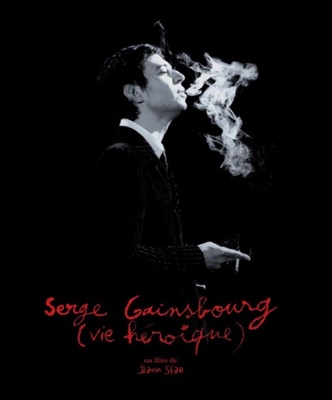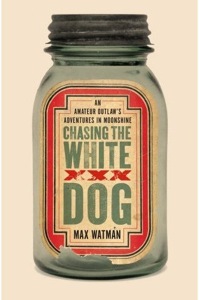Riverwalk Quarry Rock, Naperville, Illinois

Photo by Joe Carducci
Something About Serge
by Carolyn Heinze
There he was.
 He was easy enough to pick out. Even in the grim grimy-greasy jaundiced not-so-flattering subterranean Métro light. Oh, it was him all right – no doubt about it. Or a fabulously finely-formed facsimile thereof. His profile, pitched in a precisely preconceived profile of a pose, the enormous ear, the prominent nose. His chin – smooth, not yet his signature unshaven chin— juts serenely, sagely, slightly upturned. The lips, sensual-soft, poised in mid-exhale. As if he were singing. Or smoking. No mistaking him, this finely-formed facsimile of one of France’s most famously infamous artists, one of the Fifth Republic’s most notorious agents provocateurs, the man who flipped la chanson française upside down and inside out and right side in and right side up all over again. He was Serge Gainsbourg. Or at least he was meant to be. Only, come to think of it, on closer inspection, he wasn’t singing. Only, on closer inspection, come to think of it, he was smoking. But where was the damn smoke? And the cigarette? What in hell had happened to Serge Gainsbourg’s cigarette?
He was easy enough to pick out. Even in the grim grimy-greasy jaundiced not-so-flattering subterranean Métro light. Oh, it was him all right – no doubt about it. Or a fabulously finely-formed facsimile thereof. His profile, pitched in a precisely preconceived profile of a pose, the enormous ear, the prominent nose. His chin – smooth, not yet his signature unshaven chin— juts serenely, sagely, slightly upturned. The lips, sensual-soft, poised in mid-exhale. As if he were singing. Or smoking. No mistaking him, this finely-formed facsimile of one of France’s most famously infamous artists, one of the Fifth Republic’s most notorious agents provocateurs, the man who flipped la chanson française upside down and inside out and right side in and right side up all over again. He was Serge Gainsbourg. Or at least he was meant to be. Only, come to think of it, on closer inspection, he wasn’t singing. Only, on closer inspection, come to think of it, he was smoking. But where was the damn smoke? And the cigarette? What in hell had happened to Serge Gainsbourg’s cigarette?Because the thing about this country, the thing about France, is that you can’t be here, really be Here – as in exist within and live with and operate amidst and integrate and mingle incognito among the natives – without learning about Serge, and sometimes this means you learn more, so much more, than you might care to know. And the first thing you learn is this: Serge sure liked his cigarettes. Or, more specifically, his Gitanes. And Serge without his cigarette, Serge sans Gitanes, well, it’s like the proverbial birthday sans proverbial cake. Like the proverbial cake without the icing. Like the proverbial ice cream sundae without the cherry on the proverbial top. Like Bastille Day without the proverbial parade along the Champs-Élysées, or worse, a proverbial parade featuring only Sarkozy and no runaway horses from the Republican Guard to make it all better. In a word, in three words, in a phrase: it’s just wrong. All of it.
In other words: What was the R.A.T.P. thinking?
That’s Régie autonome des transports parisiens, in case you didn’t know. The men who man the Métro. And the autobus. In all fairness, in all truth, to be honest, to be frank, the R.A.T.P. doesn’t typically think of much else than going on strike. Or raising their rates. Or raising their rates while on strike. But still. . .
They removed, they extracted, they air-brushed, they photoshopped, they snatched away Serge’s Gitane. They metaphorically crushed it into an art-director’s ashtray. Blasphemy! Heresy! Disorder and disarray and misconduct and disrespect! Serge sans cigarette? What a diss! And weirdly, up in the above-ground atmosphere, at the bus stops, his Gitane had been restored — Serge was allowed to smoke at the bus stop, apparently . . . but the Métro was interdit. Not that one should ever question the logic behind the costards-cravates — the Suits — that run the Parisian transport system, but still . . .
Given the cigarette so rudely snatched from Serge’s mouth in the Paris Métro portion of the movie’s ad campaign, one wonders how extensive the Gitanes budget was for Gainsbourg: vie héroïque. Le Bio-picque. Had the manufacturer acted as sponsor? Had the French film industry finally gotten hip to product placement? Either way, it would be accurate, in some form or shape, to declare that the movie was, in its own way, (a clearing of the throat) smoking.
In the early days, in his early shy and whispery way, Serge observed that, “At the cinema, people like to see films that are violent and terrible.” Gainsbourg: vie héroïque is neither. In point of fact, it’s pretty damn good. In point of fact, when you think about it, and when you think about biopics in general, and when you think of the state of cinema in general, and when you think of the state of French cinema in general, in point of fact with Gainsbourg: vie héroïque, they did a generally classy job.
Because here’s the thing, cinéphiles: there are some fabulous shoes in this movie. Damn sexy. On the boys and on the girls. The pianos? Pure porn. And Juliette Gréco’s dress? (Well, it wasn’t the actual real Juliette Gréco, it was an actress, Anna Mouglalis, but still . . .) The backless one? Held together with a string of diamonds? Hot. (The real actual dress was black, but I think it’s safe to say that it was red-hot.) As was Anna, or Juliette, or . . . And then there were a few filmic devices, clever and aesthetic and generally pretty surprisingly great, that got the directors and writers and producers and crew people and best boys and extras and actors and the audience in and out and around some un-classy, un-clever, un-conscionable classic biopic characteristics. Especially the violins.
Because: There’s a certain unappetizing reality, a certain Ugly Truth about a certain segment of the French film industry today. A certain set of French directors of a certain set of mind almost certainly always try to copy a certain style of cinema. A certain style of foreign — and thus non-French — cinema. From abroad, that is. Abroad as in Hollywood-abroad. As in America. Which means American-style formulas (in French) and American-style scripts (in French) and American-style starlets (in French) and, worst of all, American-style violins (almost certainly imported directly from France). You know the ones. The soaring, sailing, swooping, sweeping kind that almost certainly always swoop and sweep and soar and sail in the background, right at the climax of the film — immediately after the crisis but before the dénouement — and here’s Bruce Willis, his broad balding brush-cutted head baldly braving a barrage of bullets, and in the background there they are, the American violins, and there’s probably almost certainly an American flag, too, and there’s definitely Bruce, brave, bold, bald, buzz-cutted et al, and the bad guys are coming and his M16 or AK-47 or whatever the hell it is is jammed and . . . and . . . cue more American violins! And the American flag!! Land of the free, home of the bald!
Well, thankfully, in Gainsbourg: vie héroïque there’s none of that. No Bruce, no brush cuts, no American violins, thank you, Dieu. And thank you, Director Joann Sfar. Oh sure, there’s violins, but they’re Serge’s own. At least in some shape or form. Only arranged and performed by somebody else.
Here’s the formula:
Feed a Frenchman two glasses of cheap Bordeaux and it’s near-impossible for him to resist slipping into a little Serge. At parties, they huddle in little Frenchmen herds, not really Rugby-scrum-like, but more fashionista Frenchman-like, bunching up around the iPod or the laptop or the CD player or, if they’re super-ultra-hipster-chic, the record player, as Gainsbourg Big Bad Wolf’s his way through “Je t’aime moi non plus,” with Jane Birkin or Brigitte Bardot, one or the other, depending on how many versions of the song are on hand, uncontrollably gasping, panting, crying out, coming, climaxing, wheezing in the background. With Serge on the sono, these Frenchmen begin lighting their cigarettes differently, with a flourish, a figure-eight, a Fosse-esque flick. Those Frenchman lucky enough to have landed an English girlfriend — or hell, any girl from the U.K., or any girl from any of the former U.K. colonies, or any girl who can at any time at all accurately imitate an English accent, or, hell, any girl at all, at any time, no matter what language she speaks, that wears micro-nano-mini mod dresses over lustrous-lush-long-lisse legs — at some point, sometime, in some way, somehow imagines himself, considers himself, to be Serge. You know, in the context of Jane.
And then, through a screen of smoke that’s twisting, twirling, curling, whirling like a dancer performing a sexy-sad swan song, they start telling you, in detail, over and over again, at length, repeatedly, raptly, about Serge. They even adopt his ticks – the little wave of the chin, the jerky-quick nods of the head, the sneery-snarly-smarmy-cynique style of speech.
 Like did you hear about the time that he was on Michel Drucker’s show and he told Whitney Houston that he wanted to fuck her? Live – en direct ? You shoulda seen her face! Or that tune,“Les sucettes,” that he wrote for and performed with blonde, innocent, teenage, practically France’s own version of the All-American-girl-next-door France Gall, and she had no idea, none whatsoever, that the song strongly hinted at not only how much Annie liked lollipops but Something Else Too, that there was a double entendre, that it wasn’t just lollipops that Annie loved sucking? Then there was that TV show where he burned three-quarters of a five-hundred franc note for all the country to see, to signify what percentage of his profits were going toward taxes, and of course it’s completely illegal to burn money in public or otherwise because, well, money’s for the State to burn. And did you hear about the time he re-recorded France’s national anthem, the magnificent Marseillaise, a tribute to blood and war and violence and arms and the eradication of all who are not of pure blood, of those who are of sang impur, reggae-style, with Bob Marley’s Sly & Robbie performing and Bob Marley’s back-up singers singing back-up, summing up all that war and blood and violence and arms and impure blood as “et caetera ?” It’s a catchy little chorus – here, let’s play it for you. Pierre — merde! — throw it on . . . I want to show her why it really pissed people off! Oh, and then there was that video clip, the one for “Lemon Incest,” the one Serge filmed with his pre-pubescent daughter, Charlotte, that features the two of them rolling around an enormous satin-sheeted bed — Serge all bear-y and bare-chested, Charlotte clad in a skimpy blouse and white cotton panties — and in breathy bed-tones they’re discussing the unique, sacred, unrealised love, a love that can never be consummated, that’s shared between father and daughter? That — that — well, what would they make of THAT back in YOUR country, Caro-leen?
Like did you hear about the time that he was on Michel Drucker’s show and he told Whitney Houston that he wanted to fuck her? Live – en direct ? You shoulda seen her face! Or that tune,“Les sucettes,” that he wrote for and performed with blonde, innocent, teenage, practically France’s own version of the All-American-girl-next-door France Gall, and she had no idea, none whatsoever, that the song strongly hinted at not only how much Annie liked lollipops but Something Else Too, that there was a double entendre, that it wasn’t just lollipops that Annie loved sucking? Then there was that TV show where he burned three-quarters of a five-hundred franc note for all the country to see, to signify what percentage of his profits were going toward taxes, and of course it’s completely illegal to burn money in public or otherwise because, well, money’s for the State to burn. And did you hear about the time he re-recorded France’s national anthem, the magnificent Marseillaise, a tribute to blood and war and violence and arms and the eradication of all who are not of pure blood, of those who are of sang impur, reggae-style, with Bob Marley’s Sly & Robbie performing and Bob Marley’s back-up singers singing back-up, summing up all that war and blood and violence and arms and impure blood as “et caetera ?” It’s a catchy little chorus – here, let’s play it for you. Pierre — merde! — throw it on . . . I want to show her why it really pissed people off! Oh, and then there was that video clip, the one for “Lemon Incest,” the one Serge filmed with his pre-pubescent daughter, Charlotte, that features the two of them rolling around an enormous satin-sheeted bed — Serge all bear-y and bare-chested, Charlotte clad in a skimpy blouse and white cotton panties — and in breathy bed-tones they’re discussing the unique, sacred, unrealised love, a love that can never be consummated, that’s shared between father and daughter? That — that — well, what would they make of THAT back in YOUR country, Caro-leen?“It’s not fair to reduce Serge’s notoriety to his long list of scandales,” they’ll conclude, lighting another Lucky or Marlboro or Winston or Camel while wishing, secretly, silently, that, if just for that soirée, beforehand, at the Tabac, they had substituted their usual brands for the famed, if foul-smelling, Gitanes. “He was respected for his amazing body of work. He was loved for advocating and protecting freedom of thought, freedom of spirit, the libre-esprit.”
(Really what they’re saying is that they admire and laud and love and envy Serge for getting to go to bed with Bardot, Birkin and Bambou.) (Especially when you took into consideration his un-Aryan, un-Adonis-like, unappreciated ears and nose.) (It’s fair to say, in all fairness, that it’s too easy to call Bambou “Bimbo,” but we will anyway, in all unfairness.)
“The first time I met him I thought he was horrible,” confessed a wide-eyed British Jane Birkin in wide-eyed British French in a television interview, back in the day, back when Serge was still alive, back when she was his wife, the love of his life. “But what I had originally taken for aggression was actually enormous shyness.”
If you didn’t know much about Serge, if you just took him at face value, if you just examined him, as they say, au premier degré, you might write him off as an elegant misogynist. A charming one, not much of a looker, perhaps, at least in the classical sense, and — if you’re into cool suits and Cartier watches and Dupont cigarette lighters — an elegant one, sure, but a misogynist all the same. Or maybe, if you don’t know Serge as well as some of us do, you might write him off as a rip-roaring, smoke-breathing sexist male chauvinist pig. And if you only knew Serge superficially, if you hadn’t really taken the time to get to know him, really get to know him, you know, in that deep-down-profound-getting-to-know-him-way, if you really only took him at face value, and if you really get quite squeamish any time anyone’s just a wee bit nasty, a tad bit dirty, a weeny-teeny-little bit vulgaire, well . . . Well. To each her own. No, no really — every girl deserves to have her own opinion, after all. No matter how uninformed it may be. When it comes to opinions, ladies, don’t worry your pretty little heads — no one’s saying that you’re not entitled. Au contraire !
It’s just that you’d be wrong. If you were of the Serge-was-a-misogynist opinion, you’d be completely off the mark. But that’s O.K. — not all of us ladies can grasp and get and understand and comprehend the double entendres, the plays-on-words, the puns. Even when they’re translated into our own native tongues. You know how we women are with jokes — some of us even date them. And then there’s the fact that Serge almost certainly exclusively wrote for women, women like Gréco and Deneuve and Birkin and Bardot, and Hardy and Paradis, too, women whose careers and creativity and artistry and craft he launched and nourished and cultivated and helped to blossom and grow and bud and bloom. Some of them couldn’t even really sing, at least not if we’re going to get all tight-assed and analytical and annoying about classical chops, but he knew what to do with them anyway. How to direct Jane’s shaky baby-girl voice that was never sure of hitting the right note in the right direction; or how to make la Deneuve’s uptight, pickle-up-the-butt comportement, well, kinda cute. Hell, Serge even made it seem O.K. that Bardot sang like a dying cow, as if he understood in advance the animal activism to come. And the fact that she couldn’t act? No matter — she didn’t look like a dying cow, after all. He merely had her stand still, in a tableau, for the clip for “Bonnie and Clyde,” stunned . . . as if he’d clubbed her like a baby seal.
Why? a journalist once asked him. Why do you mainly only write for women? “Because it’s more agreeable. . .” And the puns, the plays-on-words, the harsh, gimlet-eyed reversals and inversions and sous and double entendres ? Well, listen louder, ladies, because most times? In that breathy-bedroomy-surly-snarly-cynique voice that made it sound like he was dirty-talking directly to you? Serge, I swear to you, was making fun of himself.
“We take women for what they are not,” Serge said, with, no doubt, a matter-of-fact swirly swoosh of his cigarette, “and we leave them for what they are.” Take that for what it is, but take it with a lot of thought and even some consideration, because it’s arguably one of the most feminist statements and accurate observations a dirty old alleged misogynist has ever made.
Jane left.
Jane left Serge, after a long spell, not for what he was, but for what he had become. “He’s very difficult to live with . . . but who wants easy?” she’d challenged an interviewer back in her wide-eyed micro-skirted British-French days. But after a while, “easy” was probably pretty seriously attractive, because Serge had now become his real-life alter-ego, Gainsbarre. The bloated, belligerent, boozed-up Gainsbarre, the Gainsbourg/Gainsbarre who, in the tradition of lost, aging, lost mid-life men who know they’ve screwed up a good thing and lost it for good, tried to replace Jane with the simulated Jane-simulation who was Bambou. He might have done better with a red Corvette, but he just wasn’t American. It’s all so sad to watch, especially the clip for “Charlotte for Ever,” as, on a grey, windy beach, he clings to his daughter, apologizing to her, but not only her, but obviously, inadvertently, profusely, abjectly to Jane, Charlotte’s mother, his estranged wife, so much the love of his life. But it’s real-life, and real love, and alter-egos and all their warts and all, and the thing about Serge is that he wasn’t afraid of being human. And all honour to him. Because being human, really human, not a man, not a woman, but merely human, is pretty damn courageous. And complex.
 Gainsbourg: vie héroïque begins at the beginning but doesn’t end exactly at The End. And to the movie’s credit, it doesn’t try to cover everything in between, exactly. Which, despite the probable protests from all of those cigarette-wielding Frenchmen fashionistas, is probably for the better. Because in France, or in French cinemas, at least, or at least in Parisian cinemas, people normally stay to The End. As in The End — the very post-credit End, when the final credits have rolled, finally, bitterly. But at the Gainsbourg film? Which lasted two-and-a-half hours? People couldn’t wait. They just couldn’t wait to leave. They were desperate. Because after vicariously living through and vicariously living with and vicariously witnessing and vicariously, voyeuristically watching all of those graceful and generous and gratuitously-glowing Gainsbourgian Gitanes, it was time. It was time to go out for a smoke.
Gainsbourg: vie héroïque begins at the beginning but doesn’t end exactly at The End. And to the movie’s credit, it doesn’t try to cover everything in between, exactly. Which, despite the probable protests from all of those cigarette-wielding Frenchmen fashionistas, is probably for the better. Because in France, or in French cinemas, at least, or at least in Parisian cinemas, people normally stay to The End. As in The End — the very post-credit End, when the final credits have rolled, finally, bitterly. But at the Gainsbourg film? Which lasted two-and-a-half hours? People couldn’t wait. They just couldn’t wait to leave. They were desperate. Because after vicariously living through and vicariously living with and vicariously witnessing and vicariously, voyeuristically watching all of those graceful and generous and gratuitously-glowing Gainsbourgian Gitanes, it was time. It was time to go out for a smoke.The Former Las Palmas Theatre, Hollywood

Contact Prints by Chris Collins

Drawing by James Fotopoulos
From the greater Chicagoland desk of Joe Carducci…
Kurt Andersen’s major think-piece in New York mag sums up, after lengthy pop-history lessons, with his concern about “the elites going native”. By which he means he fears the Republicans are going to adopt Tea Party populism and unlike Presidents of the past (FDR, Reagan, “even Nixon”) the next one won’t pay lip service to populist winds, he will actually govern like pick-your-favorite fly-over lesser-humanoid: Joe the Plumber, Sarah Palin, Ron Paul… Andersen doesn’t understand/cannot conceive even, that its FDR’s populist surrender on domestic policy that is now in its death throes. The state can’t claim a greater share of economic activity without suppressing the economic vitality necessary to yield even the revenue it currently takes and considers inadequate. Roosevelt’s surrender was done in the thirties and it deepened and lengthened the recession as is commonly understood and willfully forgotten. And he wanted worse and FDR therefore had one more self-interested need to go to war to turn-over the chessboard of domestic politics and disguise the failure of his policies. A parallel trick was done in the eighties when Tip O’Neill and Jim Wright gunned domestic spending commitments under cover of Reagan’s military build-up but actually so as to obscure the effectiveness -- the revenue-increasing effectiveness -- of his tax cuts. The populists currently out there vote-buying are already in power, Kurt, and they count on math-phobic journalism majors failing to understand how lower percentages can yield greater revenue totals in a growing economy. These obfuscations always pass muster with the sharpies in the newsmedia and that is what allows sophisticated concerned commentators of today to be frightened by people they see on television who might they worry get into power. They are truly horrified, they often remind their readers, as if they aren’t sure they are believed.
Take a look at this New Yorker cartoon for a distillation of what we’ll be hearing from the pols not smart enough to step down this year.
On Presidents’ Day Terry Savage in the Sun-Times revisits Illinois’ five pension plan scams. This isn’t just an Illinois problem. These hidden deals and their fixes are what Andersen could be writing about. The era of kicking the can down the road is ending. Savage predicts what happens when all the bad borrowing comes due: “On that day, the war between the taxpayers and the public pensions will officially begin.” She uses the Governor’s own Pension Modernization Task Force figure for this state’s unfunded pension liability: “$61 BILLION! And that number is growing exponentially.” The public pensioners and those shirking their way toward theirs, pay their own taxes out of these very public monies and they don’t just occupy the people’s state, they are the state, and they come to expect this current sweet deal will get sweeter still for their public sector Morloch children who will be feeding on our Eloi descendents.
Over in the Trib Greg Burns takes a look at FDR’s gift that keeps taking, Social Security, whose own national day of reckoning is suddenly nearer as the recession drives people to give up and leave the workforce early. Because American lives are so different, and much longer than they were when Roosevelt made this deal to help families, save capitalism and whatnot, this can never be fixed. He set the age of retirement a good seven years after the average life expectancy! (He only got to 63 himself, thank God.) And people of that day were a different breed. Generations since have been bred to scam; in fact, multiversities and community colleges now disgorge thousands upon thousands of social science counselors determined to advise the advisorless on how to scam said system for everything that is their due as victims of late capitalism. And in the present hubbub over Healthcare, that such actuarial factors are elided rather than faced means that any fix will actually be some inside group’s short-term money-grab/culpability-evasion. That American medicine itself is intrinsically a success in terms of advances in its science, technology, and therapeutic application, makes this whole exercise in “reform” exactly the kind of elite populism Andersen pretends to fear for us in our future.
I think NYT columnist Bob Herbert belongs on television where his distaste for the medium really transmits. His tiredest liberal complaints look so much better than they read. Tuesday’s column, "What’s Wrong With Us?" is a plea for infrastructure spending without the least acknowledgement that the money has a million other places to go thanks to sentiments expressed in the rest of his columns. The state will never do well what it has to do until it stops trying to do what it shouldn’t be involved in.
Theodore Dalrymple in City Journal on The Galbraith Revival is good on the disguised self-interest of a Roosevelt or Galbraith, and its cold lack of concern for what today is called sustainability. He quotes from Galbraith’s 1981 autobiography about the early FDR period, “‘Word had… reached the university that a nearly unlimited number of jobs were open for economists at unbelievably high pay in the federal government… All the new agencies needed this talent… so a new gold rush began.’ One might think that this would have opened his eyes to the vested interests of bureaucracy -- to the possibility that large government programs might operate more for the interest of the apparatchiks than for that of the alleged beneficiaries. But it never did.” Dalrymple goes on to reference another of Galbraith’s books, “In The Good Society… he writes that ‘the comfortably affluent resist public action for the poor because of the threat of increased taxes.’ It is true, of course, that the well-to-do resist tax increases in large part because they do not want to give up what they have; practically no one likes to be deprived of what he has. But in light of the ‘gold rush’ described above by Galbraith, is it not at least equally likely that those who propose tax increases do so in order to increase their own power and emoluments?”
This politico-economic dynamic is easier to see over in Europe where the social bargains are even corrupter and claim greater percentages of national economic activity, whilst regulatory and tax burdens tamp down the productivity needed, if just to pay for the socialism. There’s a lot of eye-opening reporting on Greece’s problem and its ramifications for the Euro, the EU, and Europe this week: Jacqueline Doherty, Simon Johnson & Peter Boone, George Papamarkakis, and even Paul Krugman. But for Greece herself? I recall that Robert Conquest, the Anglo-American historian of the Soviet Union, in his arguing that Britain should not ditch the pound for the euro, said something to the effect that the British being British would abide by the monetary agreements they’d sign, while the French being French would not. He didn’t even get to the Greeks… (Here is a transcript of an episode of “Uncommon Knowledge” from 2000 where Conquest mentions “elitist populists” in reference to those pushing the UK toward the EU.) And then returning here, we are presently counting on the Democrats to resist their impulse to construct a European-style welfare state where subsidized jobs are protected by a regime of fair-trade don’t-call-them-tariffs. A sure way to turn a trade war with China into a real one later in the century.
***
Lula da Silva in Brasil, on his way out the door is adding 46,000 new posts to the government. This can only be done once. Or twice… maybe. “‘The goal of the government is to give the State a new strategic role… (and this) would be incompatible with a reduction in staff’, points out a release from the Planning Ministry.”
I give ’em less than fifty years.
***
New York Times & women
 Janet Maslin on Ken Gormley’s book, The Death of American Virtue, which apparently goes back through the Bill Clinton scandals with every living principal except Hillary talking it over, demonstrates how female journalists can never really intone the actual issues at stake for women as women in such stories -- even if that is somewhat unofficially their beat. They will deal on a superficial pride level with Does the wife stand next to her scandalized pol-husband when he crawls out before the television lights? Each of the women in the story except maybe Janet Reno felt compelled to remake their wardrobe, their hair and their faces to the point of plastic surgery. And each time they did so the jackals in the media, male or female, interested and invested all, crowed to celebrate the then visual confirmation that these women did not belong on our television sets at all. The fact that they were on our televisions and yet didn’t look like network, cable or at least major market news-honeys overwhelmed the particulars of whether Monica, or Paula, or Linda, or Juanita, or even Hilary herself -- the wronged wife/demon bitch of the various stories -- in any day’s news had been proved correct or wrong on this or that point of disorder. Neurologists are parsing the perverse motives women have in coupling with scoundrels and alpha-males of various types. But female writers are still pretending to know nothing about any of it. The same book is reviewed in Tuesday’s WSJ by ABC’s Jonathan Karl and he’s sharper on the politics and you don’t expect him to parse the female angles and he doesn’t pretend to. He likes the book as well and this sticks out of his summary: “Perhaps nobody opposed expanding the investigation (to Lewinsky) more than Mr. Starr’s deputy Hickman Ewing, who was running the independent counsel’s Little Rock office and felt that Hillary Clinton had a lot to answer for…. As Mr. Ewing put it: ‘Monica saved Hillary.’”
Janet Maslin on Ken Gormley’s book, The Death of American Virtue, which apparently goes back through the Bill Clinton scandals with every living principal except Hillary talking it over, demonstrates how female journalists can never really intone the actual issues at stake for women as women in such stories -- even if that is somewhat unofficially their beat. They will deal on a superficial pride level with Does the wife stand next to her scandalized pol-husband when he crawls out before the television lights? Each of the women in the story except maybe Janet Reno felt compelled to remake their wardrobe, their hair and their faces to the point of plastic surgery. And each time they did so the jackals in the media, male or female, interested and invested all, crowed to celebrate the then visual confirmation that these women did not belong on our television sets at all. The fact that they were on our televisions and yet didn’t look like network, cable or at least major market news-honeys overwhelmed the particulars of whether Monica, or Paula, or Linda, or Juanita, or even Hilary herself -- the wronged wife/demon bitch of the various stories -- in any day’s news had been proved correct or wrong on this or that point of disorder. Neurologists are parsing the perverse motives women have in coupling with scoundrels and alpha-males of various types. But female writers are still pretending to know nothing about any of it. The same book is reviewed in Tuesday’s WSJ by ABC’s Jonathan Karl and he’s sharper on the politics and you don’t expect him to parse the female angles and he doesn’t pretend to. He likes the book as well and this sticks out of his summary: “Perhaps nobody opposed expanding the investigation (to Lewinsky) more than Mr. Starr’s deputy Hickman Ewing, who was running the independent counsel’s Little Rock office and felt that Hillary Clinton had a lot to answer for…. As Mr. Ewing put it: ‘Monica saved Hillary.’” Manohla Dargis reviews the film Videocracy, a documentary about Silvio Berlusconi, in the NYT. Looks like something to see, though it fails to bring the time-honored adjective Fellini-esque to Manohla’s mind. That might’ve validated Silvio on terms embarrassing to the profession of film criticism.
Manohla Dargis reviews the film Videocracy, a documentary about Silvio Berlusconi, in the NYT. Looks like something to see, though it fails to bring the time-honored adjective Fellini-esque to Manohla’s mind. That might’ve validated Silvio on terms embarrassing to the profession of film criticism.Eye-Opening to Jaw-Dropping, by Shaila Dewan, and Katie Zezima in NYT. Women in Manhattan and in university faculties nationwide can now zone-out over the new, not-so-sugary buzz of the Professor-Killer. The first thing I noticed is that she is coiffed like Eve Ensler and she blasts away on V-Day practically. There’s paydirt to bury here.
Charlotte Allen has the cover story in last week’s Weekly Standard, and it’s cumulatively quite powerful and sad as she combs through “the new dating game”, the collegiate sex imbalance, the latest findings in the study of the brain, and the How-to Player’s handbooks that claim to isolate the weak spot in the female psyche thus solving women for their readers on the level these lined-up losers require. Never fear, alcohol should make up the differences all around quite nicely. Small chance NYT female staffers will find this in the increasingly hard-to-find Weekly Standard.
***
The sham math test for teachers in Illinois may be ending according to the Sun-Times. Still, “The U.S. teaching profession still draws from the ‘bottom half of the college population,’ while countries that outperform the United States tend to pull their teachers from the top third….”
***
"Paris declares war of words" by FT reporters at the UN and EU:
“Gerard Araud, France’s multilingual ambassador to the UN, declined to outline the programme for his country’s presidency of the UN Security Council in English, even as aides scurried to set up translation facilities. ‘I don’t speak English. Point… It’s unacceptable,’ he said…. Mr Raffarin last month delivered a similar message to Brussels, where in the past decade the European Union has evolved from being a bastion of French-speaking diplomacy to adopting English as its de facto working language.”
Gallic pride gives way to la dépression française, by Dominique Mosi in the FT:
“Whether in high technology or culture, there is a nagging sense in France that yesterday was better than today, let alone tomorrow. What will be France’s standing in a globalised world no longer dominated by the west? It was one thing to defer to the US, but what about China?”
***
"Young and wasted" by Francis Beckett in the New Statesman charts the British postwar baby boom generation and what it did with its special prerogative:
“We trashed it because we did not value it. We trashed it because we knew no history, so we thought our new freedoms were the natural order of things. It was as though we decided that the freedom and lack of worry that we had inherited was too good for our children, and we pulled up the ladder we had climbed.”
***
"Saint and Sinner", Michael Scammell on Ignazio Silone, in TNR. Scammell wrote the recent biography of Arthur Koestler so this is more essay than book review but Silone’s life and work, like those of Koestler, Camus, Orwell and others, remain instructive even in moments we might assume now to be proven mistaken because they lived through a period when the war of ideas became literal and forced the more honest writers that survived to look over the horrors which came of their own idealism and theory and begin to think about a climbdown-politic that would try for less but might accomplish more modest good for peoples high and low. Silone, whatever sins, was well-grounded: “Everything I have written up to now and probably everything I will write in the future, even though I have traveled and lived abroad for many years, refers only to that part of the country which can be seen from the house where I was born -- no more than twenty or thirty miles in any direction.”
***
 "Helter Skelter, German Style". Peter E. Gordon in TNR on Hans Kundnani’s book, Utopia or Auschwitz: Germany’s 1968 Generation and the Holocaust. According to Gordon, Kundnani fixes on the “continuity thesis” of fascism with which Theodor Adorno and Max Horkheimer inadvertently set the sixties German student radicals “to see Nazism everywhere.” And then, if the adults elsewhere failed to defend their achievements, their universities, and their political cultures, in Germany in the sixties the adults who had largely come of age during the Third Reich, had no standing at all with which to stop the young radicals from recapitulating every miserable political error of the previous half-century in a fraction of the time.
"Helter Skelter, German Style". Peter E. Gordon in TNR on Hans Kundnani’s book, Utopia or Auschwitz: Germany’s 1968 Generation and the Holocaust. According to Gordon, Kundnani fixes on the “continuity thesis” of fascism with which Theodor Adorno and Max Horkheimer inadvertently set the sixties German student radicals “to see Nazism everywhere.” And then, if the adults elsewhere failed to defend their achievements, their universities, and their political cultures, in Germany in the sixties the adults who had largely come of age during the Third Reich, had no standing at all with which to stop the young radicals from recapitulating every miserable political error of the previous half-century in a fraction of the time.***
Christopher Hitchens on Amnesty International’s decadent phase. It’s as if a society’s common sense culture leaves a moral wilderness to open up in the marketplace of ideas that beckons settlers with delusions of grandeur, none more than those ideologically opposed to the free motion of any real marketplace.
***
Wendy Smith reviews Steven Solomon’s book, Water - The Epic Struggle for Wealth, Power, and Civilization:
“Seafaring culture, he argues, fostered ‘representative, liberal market democracy.’ Foreign trade across the open seas empowered private enterprise and loosened the government’s grip on the economy; societies driven by the profit motive responded more imaginatively to change. A hydraulic state like Imperial China excelled in the construction of water infrastructure, such as the 1,100-mile Grand Canal that linked the Yangtze and Yellow rivers in the 7th century but was inherently inward-looking and conservative: In 1433, for example, an emperor fearful of destabilizing foreign contacts terminated three decades of long-distance sea voyages, squandering China’s ‘clear naval superiority’ at the dawn of the Age of Exploration.”
***
The NBA’s locker-room nerds in WSJ. Don’t get your hopes up; they’re all the foreigners.
***
 "Moonshine Gumshoe", Eddie Dean’s review of Max Watman’s book, Chasing the White Dog, in the WSJ
"Moonshine Gumshoe", Eddie Dean’s review of Max Watman’s book, Chasing the White Dog, in the WSJ***
Bill Wyman getting his act together in WSJ, advising newspapers to learn how to serve their readers by checking Craigslist. Wyman used to think he was doing a bang-up job serving his readers at the Chicago Reader as he wrote his weekly review of the platinum-selling zeitgeist granfalloons-of-the-week ("Thriller", "Use Your Illusion", "Tunnel of Love"…) which the Theater crowd who ran the paper would put in the first section, leaving the Music section with just listings, and a few photos. The listings were fine, but the Film section had a paragraph about each film in town, most written by Dave Kehr no less. The Reader approach to Music was as geriatric as the daily newspapers were offering and it made the Reader a joke compared to free weeklies elsewhere -- even the wholly-owned L.A. Reader where R. Meltzer, ex-Chicagoan Chris Morris, Matt Groening and others did a good job covering that city and what passed through it. The old Chicago Reader leather-couch WXRT crowd were allergic to their city’s music. Eventually Billboard’s interest in what was happening in Chicago forced the Reader’s hand. Wyman tried to be interested; here’s an artifact from that era: Steve Albini vs. Wyman, Kot and DeRogatis. Wyman soon left town. For NPR apparently. Rock on.
***
Lately, however, owned by outsiders-or-not, the Reader has been running some nice local music history pieces by Jake Austen (of Roctober and here occasionally) and these may be longer-form than anything appearing in the Voice or Weekly these days. This week is Jake’s portrait of Southside music impresaria Helen Wooten.
***
Hermosa Beach Punk Flyer Exhibit.
Sat. February 20, 6pm, Hermosa Beach Historical Society
***
Rowland S. Howard film trailer.
***

Decibel Magazine online: Chandler, Weinrich, Adams on the Naomi Petersen shoot of the cover of the Saint Vitus “Thirsty and Miserable” EP at Tom’s Thirsty Club, Redondo Beach, Calif.
***
SST Records finally a Hot Topic A #1 with a bullet!
***
The Watt from Pedro Show for February 13, 2010: Craig Ibarra, Kid Kevin Carle + Vinnie Vegas debuting The Reactionaries - "1979"
Reactionaries record release party
Saturday, Feb. 20, 9pm, Free!
Harold’s Place
1908 S. Pacific Ave.
San Pedro, Calif.
310.832.5503
(This issue thanks to Cassius Cassius, Don Waller, Steve Beeho, J. Bennett, Dave Diebler, Bart Bull)

To receive a weekly update notice for the NV, send an email to newvulgate[at]sbcglobal.net with SUBSCRIBE in the subject line. To stop receiving notices, do the same with the word UNSUBSCRIBE.
• The New Vulgate
• Joe Carducci, Chris Collins, James Fotopoulos, Mike Vann Gray, David Lightbourne
• Copyright retained by the writer, artist, or photographer
No comments:
Post a Comment